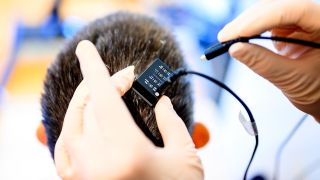Neuroscience
Latest about Neuroscience
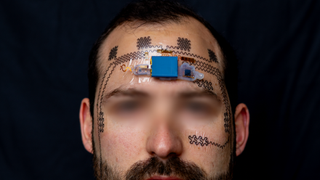
Electronic face 'tattoos' could measure your mental strain at work
By RJ Mackenzie published
A disposable, electronic "tattoo" that measures mental workload could be used to enhance safety in high-pressure jobs, researchers say.
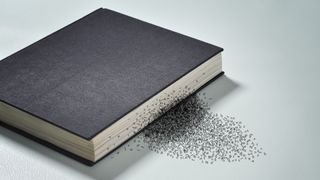
How are you able to read words without vowels?
By Roberta McLain published
The human brain can make sense of sentences — even when the vowels are missing.
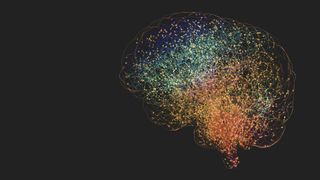
Can adults grow new brain cells?
By Marilyn Perkins published
Scientists are still debating whether the human brain is capable of growing new cells past childhood.

Solution to 'cocktail party problem' could help people with hearing loss
By Lauren Schneider published
Researchers drew inspiration from the auditory system to design a solution for the "cocktail party problem."
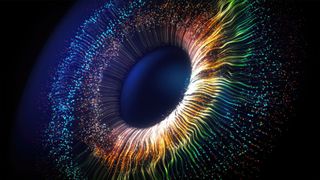
Scientists hijacked the human eye to get it to see a brand-new color. It's called 'olo.'
By Nicoletta Lanese published
Using an experimental technique called "Oz," researchers stimulated the human retina such that people saw a brand-new color.
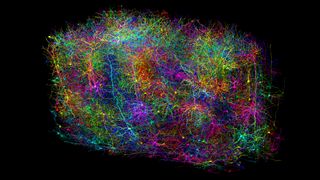
Largest-ever brain 'connectome' built by having a mouse watch 'The Matrix' and 'Star Wars'
By Kamal Nahas published
Using advanced microscopes that capture brain cell anatomy and activity, a portion of a mouse's brain was mapped and rendered into a 3D atlas that creates new possibilities for neuroscience.
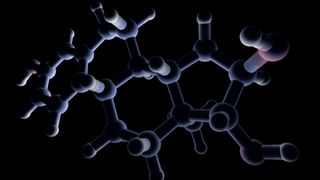
Estrogen may spur the body to make opioids after injury
By Nicoletta Lanese published
The female sex hormone estrogen, along with progesterone, appears to underlie a fundamental difference in how males and females process pain, a mouse study finds.
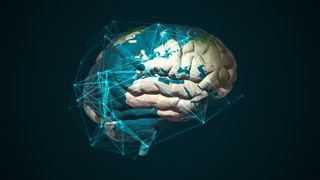
The brain may 'move' between related ideas in the same way it navigates from one location to another
By Skyler Ware published
Using a mathematical model, scientists explored how the human brain might represent information about physical spaces and about people, places and things. Turns out, it may process both in a similar way.
Get the world’s most fascinating discoveries delivered straight to your inbox.
 Live Science Plus
Live Science Plus





